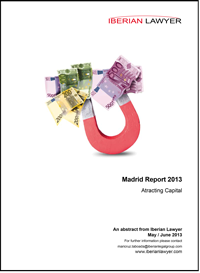The evolution of mediation: Latest trends
In July 2013, a select group of over 50 specialists gathered in Windsor, UK, to debate and exchange experiences surrounding their mediation practices worldwide. This exclusive Mediation Forum was hosted by MATA Mediation in collaboration with Iberian Lawyer In-House Club.
Over the past few years, conflicts have been increasing worldwide, and countries have also had to adapt their national legislation to the EU Mediation Directive. Both of these events have been crucial in the implementation of mediation in the majority of EU member states.
Given the rising importance of mediation, Iberian Lawyer In-House Club collaborated with MATA Mediation in a unique two-day Mediation Forum, gathering ADR experts, mediators and arbitrators from over 10 countries, including Australia, China, Germany, France, Ireland, Italy, Portugal, Russia, Scotland, Spain and the UK.
Evolution
The first day included a Master Class that highlighted a variety of experiences from the UK and Australia, where mediation has been a part of their legal systems for 20 years. Looking back, one of the key motivators to make mediation into a real conflict resolution resource was the role of judges in recommending this avenue, as well as a legislation that penalised those that opted out, explained participants.
The Master Class also looked into how mediation has evolved and whether corporate clients consider this method as an advantage in dealing with conflict. Guest Mediators, including experts such as Michel Kallipetis QC, John McGruther, Jonathan Lux and David Richbell, all concluded that companies are now mastering when and why to use mediation.
One of the main conclusions arising from the Master Class was that the main gatekeepers are still the lawyers advising companies, who often feel threaten by mediators who they fear will take work from their desks. However, looking at several countries where mediation has been very active for over 20-years shows that litigation itself is still on the rise.
Experts concluded that the time to refer the case to mediation is crucial, and it is not always appropriate to refer it at an early stage as both parties need to feel that a third party is required to unlock the conflict.
The Tsunami
The world has been divided between those that have engaged in conflict management and ADR resources (conciliation, mediation or arbitration) and those that have relied mostly on judicial systems to resolve disputes. The Mediators Forum offered participants the chance to hear how different jurisdictions are implementing the Mediation Directive and the main opportunities and challenges that they have encountered on the way.
Countries that only recently implemented the Mediation Directive often face issues related to training, enforceability and market trust, participants agreed. But the more mature countries face more technical challenges such as confidentiality questions, different processes and success levels or mediator privilege.
“The main benefit of bringing experts together is to make sure that we do not re-invent the wheel and that we are able to benefit from each others’ experiences”, said Mari Cruz Taboada, Managing Director of Iberian Legal Group and a trained mediator. “The current climate in Iberia makes this method of resolving conflict a very unique and reliable resource to speed up the resolution of conflicts and to reduce as much as possible the damage sustained by the business.”
For more information and training opportunities click here











